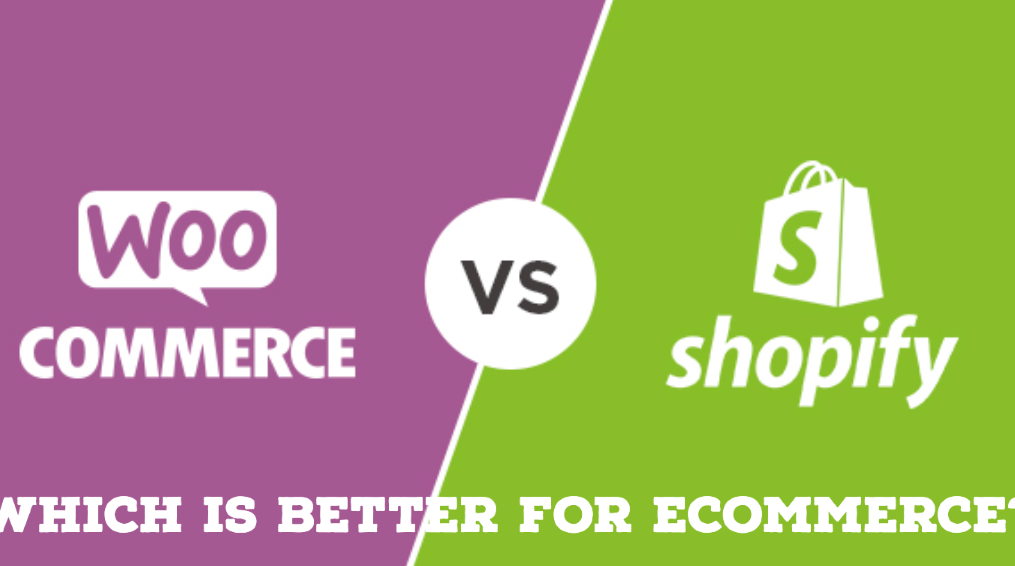WooCommerce vs Shopify: Which Is Better for eCommerce?
WooCommerce or Shopify? We’ve got you covered.
In 2022, building and running an eCommerce store has never been more important for brands to find success. Thankfully, making the shift to online sales has never been more accessible. The challenge? With so many eCommerce tools and platforms to choose from, picking the right solution can quickly get complicated.
This post tackles the market’s two biggest contenders: Shopify and WooCommerce. Both are excellent options for creating an online store but offer different approaches to running an eCommerce business. By understanding the different experiences you’ll get with each solution, you can determine which one is a better fit.
WooCommerce vs Shopify
WooCommerce is the most popular eCommerce WordPress plugin on the market, and it’s (mostly) free. WooCommerce is a good option if you already run your website on WordPress. Shopify is a cloud-based, multi-channel eCommerce platform that starts at $29/month. With back-office analytics and additional apps, you can design and run your entire store through Shopify.
Both Shopify and WooCommerce are excellent choices to run your eCommerce business, but the one you’ll prefer depends on what kind of experience you want.
The Key Differences Between WooCommerce & Shopify
Let’s first summarize the key differences and similarities between these two eCommerce solutions:

Depending on these key differences, you might already be leaning towards one solution. It’s important to note that moving from one platform to another is possible. For example, if you started using WooCommerce but want to switch, migrating from WooCommerce to Shopify is possible. Now, let’s take a closer look at some key categories to help you choose between Shopify and WooCommerce.
Features
We’ll be looking at the features that come standard in both products for this comparison. Both products also offer additional features such as extensions and integrations.
WooCommerce

Notable WooCommerce features include:
- Easy to set up on WordPress (and you can use any WordPress template)
- Unrestricted customization
- Open development means third-party developers can build and release new extensions
- Built-in blogging
- The ability to embed products and checkouts on any page
- Categories and tags to organize your inventory
- Product ratings and reviews
- Product filtering options
- Unlimited product images and galleries
- Unlimited products
- Built-in payment processing from leading providers
- Customer accounts and guest checkout
- Email templates
Shopify

Notable Shopify features include:
- Drag-and-drop website builder (with 70+ themes to choose from)
- Your domain name (which you can purchase through Shopify)
- Blogging
- The ability to accept payments directly through Shopify
- SSL certificate
- Automatic taxes and shipping rates
- Abandoned checkout recovery
- Product reviews
- Native support for multiple languages
- Customer accounts & profiles
- Email templates
- The ability to sell directly on Facebook
- Unlimited products
- Product tags with SEO built-in
- Inventory management
- Web hosting
- Analytics dashboard
- Mobile management
Winner: Shopify
With a host of features included out of the box, Shopify is the clear winner here. While WooCommerce lets you access some features for free, you’ll be spending money on additional plugins to access key features as your eCommerce site grows. Since Shopify is a for-pay service up-front, you get a streamlined set of features right from the start.
Pricing
For the price, we can start by comparing the true costs of these two eCommerce solutions. Both tools might include additional costs depending on what features you need to manage your store effectively.
WooCommerce
The WooCommerce WordPress plugin is free to download. If you find the core features lacking, you might need to invest in additional plugins, and not all of those plugins are free.
Another possible hidden cost is the price of customization. WooCommerce is “built for developers” and offers plenty of room for customization. It is useful unless you don’t have a developer on your team and require customized features or a customized WordPress theme (in which case, you’d need to spend money hiring one).
WooCommerce also doesn’t provide web hosting. You’ll need to factor in the cost of purchasing web hosting and a domain name.

Shopify
Shopify does not have a free option and starts at $29 per month. It includes web hosting, an SSL certificate, and using a free Shopify subdomain (yourname.shopify.com). If you want to purchase a custom domain, you can do so through Shopify.
Shopify offers two additional pricing tiers: a $79/month package called “Shopify” that gives you additional seats and other advanced features like gift cards and more reports, and a $299/month package called “Advanced Shopify” that gives you even more seats, more analytics, and some discounts on payment processing fees.
Security
Hacking and malware can cause serious damage to your site and brand reputation, not to mention the cost of repair if you don’t make regular backups of your site. For this reason, security should be a major factor in which platform you choose and the actions you’ll need to take once your site is live.
WooCommerce
WooCommerce isn’t its platform — it runs on WordPress — so you’ll be responsible for downloading the right plugins and taking other measures to ensure your eCommerce store is secure. It typically includes purchasing an SSL certificate, ensuring your web hosting company is secure, and setting up protective measures like fraud analysis and two-factor authentication.
You’ll also need to take action to make sure your site is PCI compliant. The Payment Card Industry Data Security Standard (PCI DSS) is a security standard for how companies handle online payments to avoid fraud and other security concerns.
Don’t take this to mean that WooCommerce is inherently less secure than Shopify — that’s not the case. It means you’ll need to do your research and put in some work up-front to ensure your site is secure.

Shopify
Because Shopify hosts your eCommerce store directly, the company takes care of ensuring your site is secure. SSL certificates come free with your plan, and your site will be PCI compliant the minute you set it up. If you’ve never set up security measures for a website before, having it all taken care of will give you peace of mind.
Winner: Shopify
Simply put, Shopify has built-in security, and WooCommerce doesn’t. Because WooCommerce runs directly on WordPress, you’re responsible for ensuring the safety and security of users’ data, cart information, and transaction details. Shopify, meanwhile, comes with security built-in, so you don’t have to worry about compliance or compromise.
And the big winner is
You!
Given the price points, feature set, support, and design options offered by Shopify and WooCommerce, you can’t go wrong with either of these popular eCommerce platforms.
Instead, it comes down to picking a platform that works with your current operations, gives you room to grow over time, and offers a solid path to increased sales success. In our opinion, that’s Shopify — use our in-depth comparison to see what each one offers, discover where they align with your business model, and find your best fit.
With the help of this blog, you should be able to create and manage Shopify store. Once you’re done, you can look at the Shopify theme customization to make your store more stunning and enhance the user’s shopping experience. Of course, the store with such product features also has a good hosting partner Like Shopify Cloud.
Born Techies –Digital Commerce agency offers Shopify, Shopware, Magento, and Bigcommerce development with the latest technologies.
Do you want to receive a free consultation about how to optimize your store and generate more sales? Reach us out at [email protected] or contact us, and we will be more than happy to help you out.

